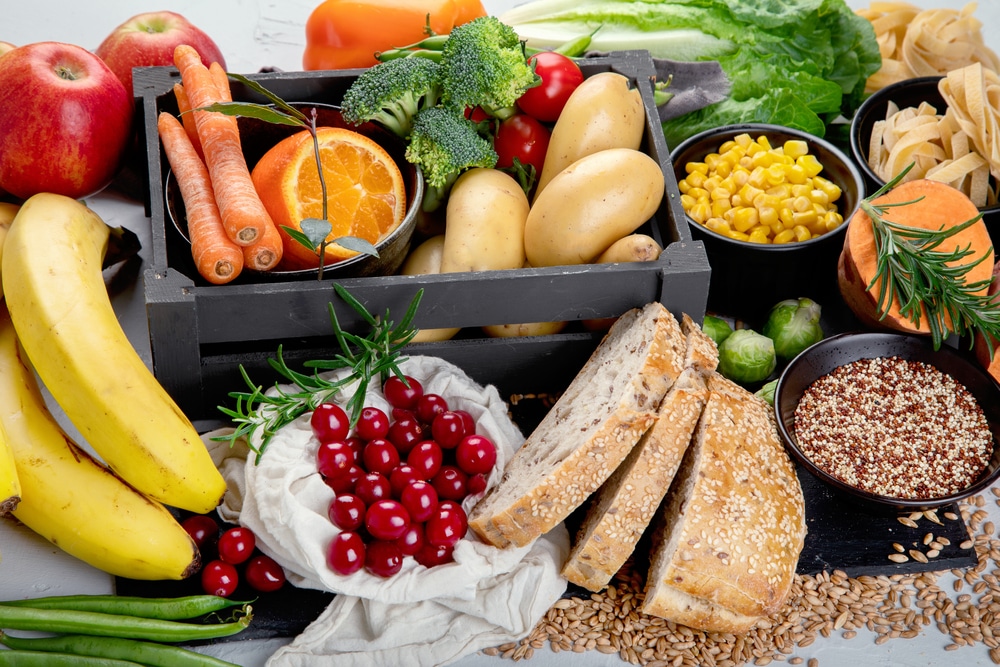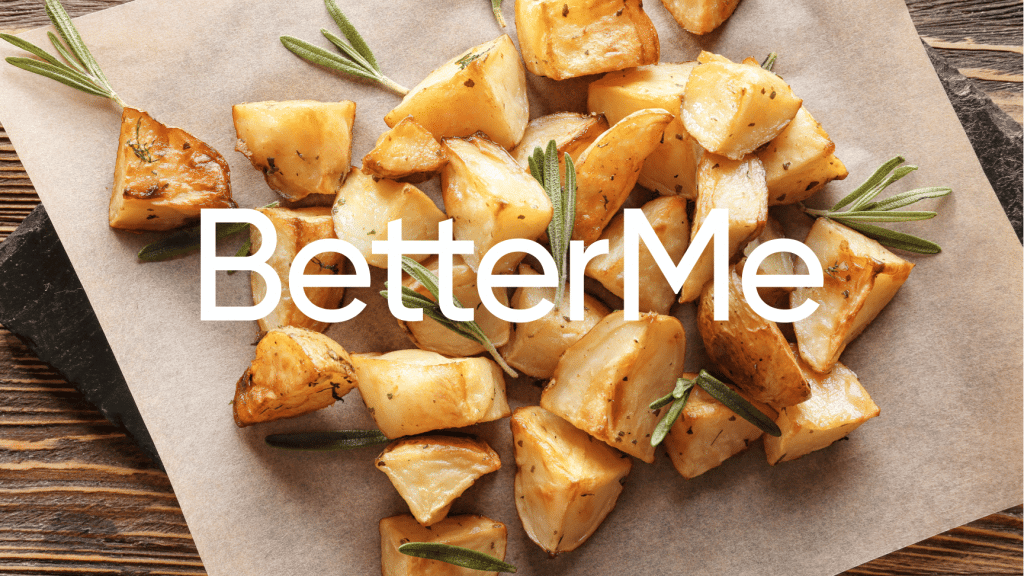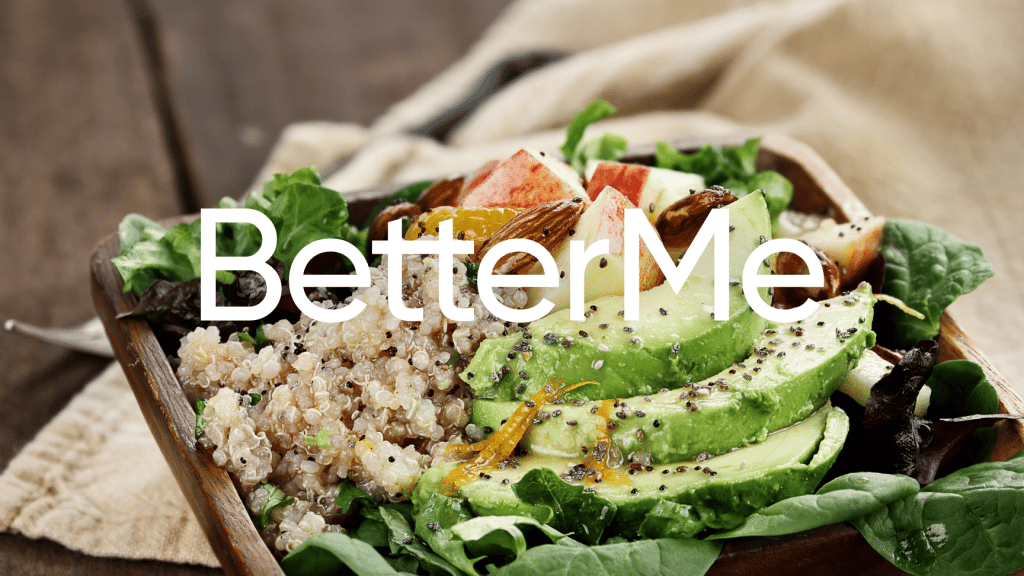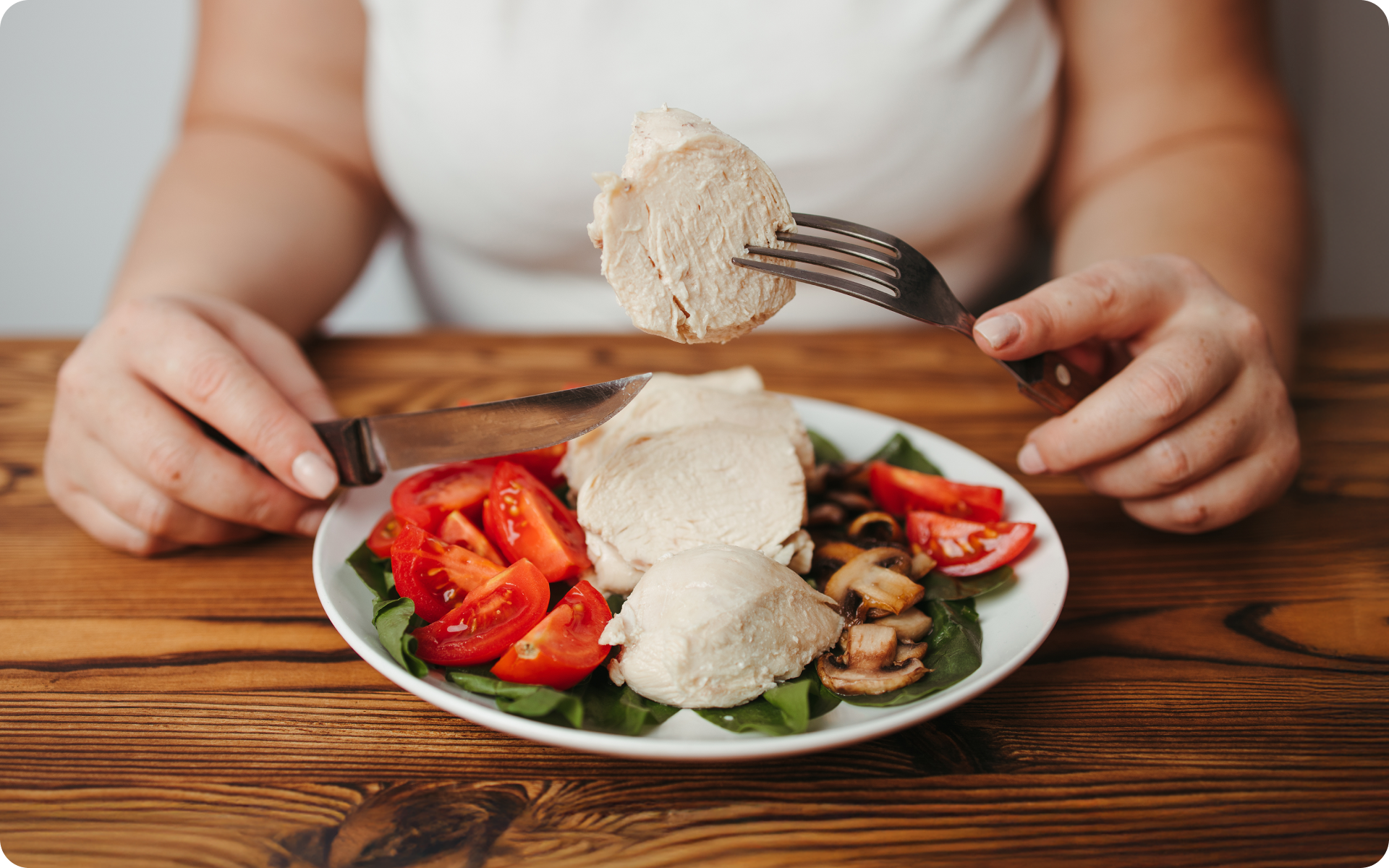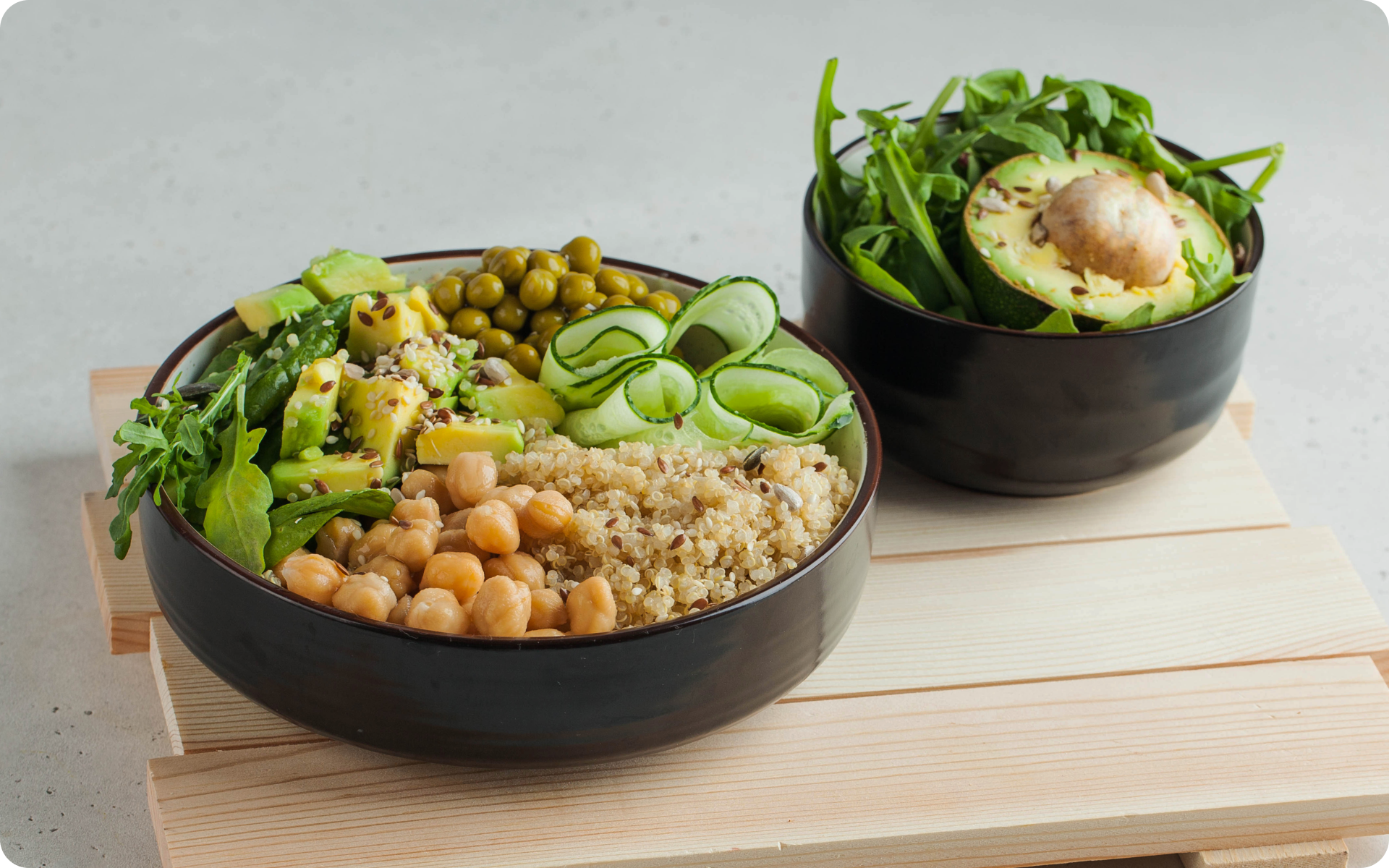Carbs get a bad rap in the fitness world, partly due to their reputation as diet saboteurs and partly due to outdated nutritional advice. While it’s true that eating the wrong kind of carbs, in the wrong amounts and at the wrong times, can lead to weight gain and a host of other health problems, there are times when this macronutrient is beneficial. Our bodies actually need carbs to function at their best. They are the preferred source of fuel for our cells and provide the energy we need to maintain our physical performance. So when it comes to post-workout nutrition, it’s important to ask the question: Should you eat carbs after a workout? If yes, what carbs should you eat after a workout? In what quantities? Read on to find answers to your most pressing questions about post-workout carbs.
Get your personalized
meal plan!
What Happens When You Eat Carbs After A Workout?
You’ve probably been warned not to consume carbs after a workout because it will lead to weight gain, or worse interfere with muscle growth by preventing your body from using the amino acids it needs to build muscle.
Contrary to this advice, consuming carbs after a workout can be beneficial as the following process illustrates that your:
Glycogen Stores Are Replenished
Glycogen is the form of glucose your body stores in the muscles and liver. It’s used to fuel physical activity and is depleted during exercise (2).
How much you use up depends on the type and intensity of your workout. For example, an endurance sport like running depletes more glycogen than a weightlifting session.
After exercise, your body needs to replenish its stores of glycogen to repair and rebuild muscle. This is where post-workout carbs come in. Eating them after your workout gives your body the glucose it needs to replenish glycogen and repair muscle.
Some argue that the amount of glycogen used when lifting weights is too small to require replenishment, but studies show that even a moderate amount of exercise depletes glycogen. Furthermore, any workout that has 6-20 sets can deplete glycogen by up to 40% (2).
If you don’t replenish your stores of glycogen, your body will have to use other sources of energy. This may slow down muscle growth and impair physical performance. These alternate sources of energy include glucose from dietary sources and protein, both of which are needed for other metabolic processes.
Read More: How Many Carbs Are In Almond Milk?
Insulin Levels Increase
Insulin is an anabolic hormone, which means that it helps your body to build muscle.
When you eat carbs, your body releases insulin that helps transport glucose from the bloodstream into the muscle cells. This is beneficial for post-workout recovery since it helps the muscles to absorb glucose and amino acids, both of which are necessary for muscle growth (3).
The theory is that insulin attaches to specific receptors located on the muscle cells, allowing them to absorb more of the nutrients. Furthermore, as an anabolic hormone, insulin inhibits the degradation of muscle tissue, which means that it helps prevent muscle breakdown (3).
Body Uses The Nutrients You Consume More Effectively
It’s well known that consuming protein after a workout can enhance muscle growth, but did you know that carbs are just as important?
Carbs provide energy for your muscles to absorb and use the protein. Without this energy, your body won’t be able to process the protein and use it to build muscle. In other words, carbs are an essential part of post-workout nutrition if you’re aiming to build muscle (5).
Furthermore, this macronutrient helps with the utilization of other supplements that you may take after a workout, such as creatine and BCAAs. Carbs increase the absorption of these supplements, thus improving their efficacy (5).
Speed Up Recovery Time
Expending so much energy and pushing yourself through a difficult workout can leave you feeling drained and fatigued. Consuming carbs after a workout can give you the energy to get through your day and help speed up your recovery time.
Simple carbs like fruit, honey, or a sports drink can be used to quickly replenish energy levels and allow you to get back to your regular routine.
The glucose from carbs is used to replenish your glycogen stores and help rebuild muscle. This leads to an increase in strength, allowing you to perform better during your next workout.
Carbs Aren’t Converted To Fat
Normally, carbs go through a process that results in them being converted to fat. This happens when you eat too much and your body can’t process all of the carbs. So it stores them as fat instead.
However, after a workout, your muscles are primed and ready to absorb the nutrients they need for recovery. It is “hungry” for those carbs, so it will use them immediately, allowing you to avoid this conversion process.
So the naysayers are wrong. Post-workout carbs don’t make you fat! They actually help build muscles.
If you’ve mustered up the courage to crush your weight loss goal, let Betterme take the sting out of this demanding process. Our app will help you restructure your habits, remold your life and crank up your fitness results!
What Are Good Carbs To Eat After A Workout?
Carbs are divided into two based on their glycemic index, the high GI carbs and the low GI carbs.
High GI foods are simple carbohydrates, also called fast-digesting carbs, that are quickly broken down and absorbed into your bloodstream. These include processed foods such as white bread, soda, candy, and sugary cereals.
Whereas, Low GI foods are complex carbs that take longer to break down and absorb. These include unprocessed carbohydrates such as fruits, whole wheat, quinoa, oats, and brown rice.
When it comes to post-workout nutrition, you want to go for fast-digesting carbs because (1):
- They are absorbed into the bloodstream immediately in order to get to your muscles quickly.
- The fast action allows your muscles to pull water into the cells and restore glycogen levels.
- They will give you a burst of energy to help with your recovery.
- They aren’t stored as fat in your body.
We recommend pure glucose, like dextrose or maltodextrin. These are simple carbohydrates that are quickly converted into energy and easily assimilated by your muscles.
Some easy sources of pure glucose include raisins, honey, and gummy bears. Read the labels to find the words “glucose” or “dextrose”.
On the other hand, slow-digesting carbs can’t be directly turned into muscle glycogen. They must first travel through the liver and be converted into glucose, then stored as muscle glycogen.
Your liver decides when and how much of the stored glycogen it will release, so slow-digesting carbs can’t provide you with the immediate energy your muscle needs.
How Much Carbs Should You Take After Workout?
The amount of carbs you need to consume after a workout depends on your activity level and goals. We recommend between 20-60 grams of high-glycemic carbs depending on the activity you have done (5).
Along with this, you’ll need 40-50 grams of protein to help your muscles recover and build strength (5). This can come from a mix of whey and casein (two different types of protein) or a good-quality protein powder.
You may also add 5-10 grams of Branched Chain Amino Acids (BCAAs) to this mix (5). BCAAs help accelerate the recovery process and prevent muscle breakdown.
Read More: Keto Milk: Dairy Milk Is High In Carbs, So Here Are A Few Keto-Friendly Substitutes
What If High-Glycemic Carbs Leave Me Sluggish?
A common side effect of high-glycemic carbs is the feeling of sluggishness.
If you find yourself feeling this way after eating the carbs, try reducing your intake and pairing it with a low-glycemic food like apples or a beet salad. This will provide your muscles with the glucose they need without leaving you feeling tired.
For example, you may have 15-30 grams of glucose and 15-30 grams of low-glycemic carbs. The slow-digesting carbs will help balance out the effects of the fast-digesting ones, leaving you feeling energized and ready for your next workout.
Don’t forget to pair your carbs with protein and BCAA’s for optimal recovery.
When Not To Eat Carbs After Workout?
If you’re on a low-carb diet, you won’t need to consume carbs after your workout.
Low-carb diets are effective for losing weight, and even if you’re an athlete, you can still gain strength and performance boosts. In these cases, protein and fats are the most important nutrients to focus on post-workout.
We’d recommend a post-workout shake with 40 grams of protein, and 5-10 grams of BCAAs. You can also add a bit of healthy fat like omega-3s from fish oil or some nut butter to your shake for a slow release of energy.
Reasons why BetterMe is a safe bet: a wide range of calorie-blasting workouts, finger-licking recipes, 24/7 support, challenges that’ll keep you on your best game, and that just scratches the surface! Start using our app and watch the magic happen.
How To Time Carbs After Workout?
Ideally, you want to consume carbs within 30 minutes of your workout. This will give your muscles the immediate energy they need to start the recovery process. Keep in mind that you don’t have to eat immediately after your workout, but research shows that delaying carb intake by more than two hours reduces glycogen replenishment by up to 50% (4).
With that being said, there’s some controversy surrounding the proper timing for carbs.
Some experts believe that glycogen levels automatically replenish within 24 hours and that timing isn’t as important. This may be true, but the evidence supporting immediate post-workout carb consumption is still strong.
The Bottom Line
Carbs are an essential part of any workout nutrition plan, and the type and amount you consume can make or break your performance.
High-glycemic carbs provide the energy your muscles need to power through and recover. Meanwhile, slow-digesting carbs help balance out your meal and provide sustained energy. Aim to consume 20-60 grams of carbs within 30 minutes of your workout, along with 40 grams of protein and 5-10 grams of BCAAs.
DISCLAIMER:
This article is intended for general informational purposes only and does not serve to address individual circumstances. It is not a substitute for professional advice or help and should not be relied on for making any kind of decision-making. Any action taken as a direct or indirect result of the information in this article is entirely at your own risk and is your sole responsibility.
BetterMe, its content staff, and its medical advisors accept no responsibility for inaccuracies, errors, misstatements, inconsistencies, or omissions and specifically disclaim any liability, loss or risk, personal, professional or otherwise, which may be incurred as a consequence, directly or indirectly, of the use and/or application of any content.
You should always seek the advice of your physician or other qualified health provider with any questions you may have regarding a medical condition or your specific situation. Never disregard professional medical advice or delay seeking it because of BetterMe content. If you suspect or think you may have a medical emergency, call your doctor.
SOURCES:
- Effects of High vs. Low Glycemic Index of Post-Exercise Meals on Sleep and Exercise Performance: A Randomized, Double-Blind, Counterbalanced Polysomnographic Study (2018, nih.gov)
- Fundamentals of glycogen metabolism for coaches and athletes (2018, nih.gov)
- Insulin action on muscle protein kinetics and amino acid transport during recovery after resistance exercise (1999, pubmed.gov)
- Regulation of Muscle Glycogen Repletion, Muscle Protein Synthesis and Repair Following Exercise (2004, nih.gov)
- The 4R’s Framework of Nutritional Strategies for Post-Exercise Recovery: A Review with Emphasis on New Generation of Carbohydrates (2021, nih.gov)
